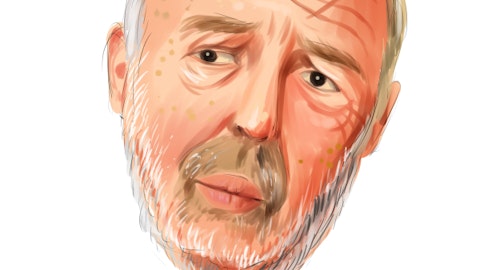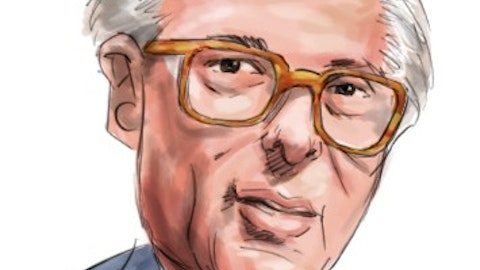And also that is also leading to the story of integration of Oi is that we are planning to incorporate to merge earlier which is the company we acquired the assets from Oi mobile in the next, let’s say, one month or one month and a half. This not only will bring savings in OpEx, but also this will unlock the tax benefit coming from the amortization of the goodwill. And these just to remind you is more than BRL1 billion cash that will come through in the next five years now. So all-in-all, we see an expand on margins, and also our growth in operating cash flow for the next year or so, because the CapEx has increased I mentioned I mean, we are going to also to have a nine — below 9 million.
Christian Gebara: And just to compliment, like the second is exactly what he said. And also there is the impact on inflation personnel cost, that is particularly important parts of our cost of serving. So it’s going to be positive in that way the operation that we have now related to personnel. Of course, there is the changing mix that that we mentioned, Fred. So of course, now when we start also selling more digital service that is cost of goods sold that is different cost mix. But in absolute numbers in the EBITDA, we are very positive about our growth. So — and also digitalization of increasing a lot the digitalization and the representativeness of our channels, both the app and also the WhatsApp, if they use the artificial intelligence that we’re increasing the usability, especially now with the new developers of artificial intelligence, that we’re going to start impacting our way of serving customers through these channels.
And in the first question about the capital reduction is good also to bear in mind that in 2025, the concession — the solution about the concession will be there. So the migration, that is what we expect. So in this case, we were going to have much more flexibility also to capital reduction. So for two years, that’s the proposal that we have.
Fred Mendes: Perfect. Very clear Christian and thank you. Just if I may do a follow-up on the concession idea. 2025 the base case in your mind is to finish the concession without paying anything extra for it, right? That’s the base case.
Christian Gebara: Look, we are in the middle of the process. There is, as, there are two processes that are going parallel. First one is the value that an Anatel decided that would be required for the immigration that is at the moment is being analyzed by the TCU, okay. That’s, that’s something that is public. And there’s a number of the figure. We are you have our questions about the methodology and the number. But that’s something that’s going to be discussed in this way, no, between TCU and Anatel. There’s a second one that is our claim for the sustainability and the financial balance of the concession that is also being discussed, we have an Anatel but at this at this time, the arbitrage chamber that we have for this topic.
In this case, we are claiming for a value that it’s higher than the value that was firstly declared as the one that we need for immigration. And we still in the beginning of the process, we had the first hearing the end of the year. And we are optimistic about the arguments and the sustainability and the lack of balance of the concession at the moment, and for so many years. So we need to define what’s going to be the outcome of these two processes. And the idea is to come to an agreement that’s going to be beneficial to the market to the country. And of course to Vivo.
Fred Mendes: Very clear, thank you, Christian
Operator: Our next question comes from Luca Sari from UBS. Please. Mr. Lucas, your microphone is open.





